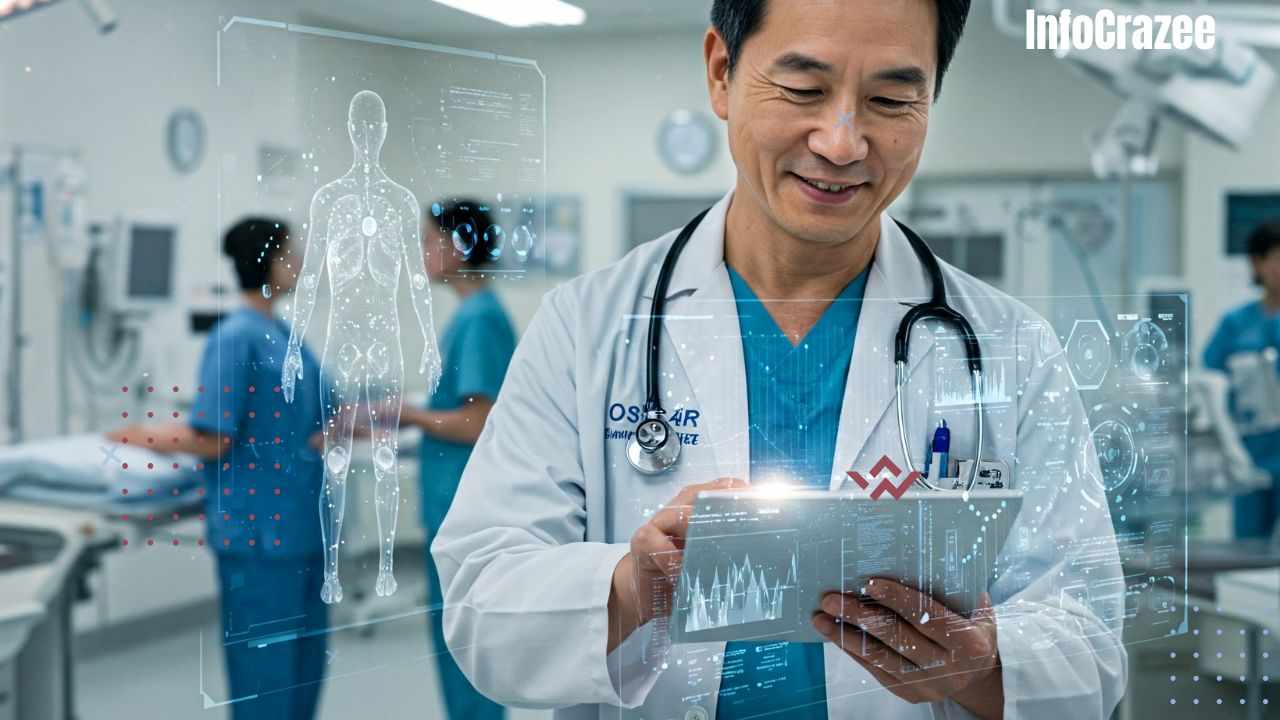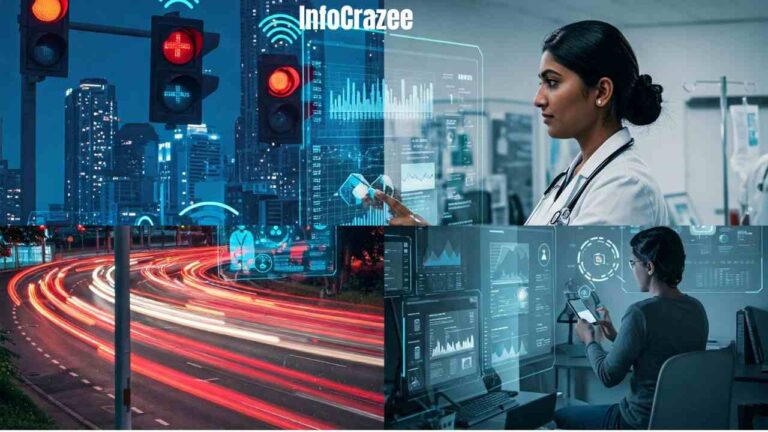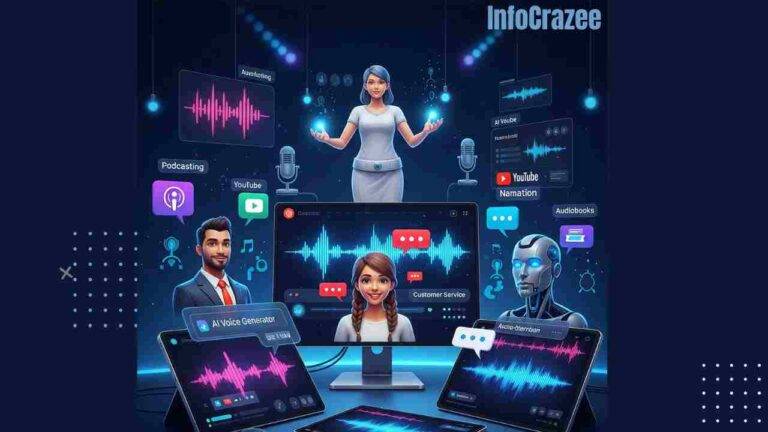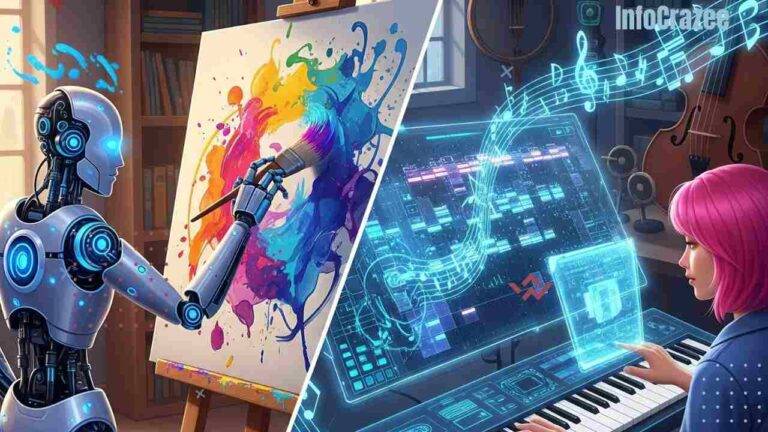How AI Is Making Healthcare Diagnostics Faster, Smarter, and More Accurate
Imagine going to the doctor and getting your test results not in days, but minutes. Or having your X-rays reviewed by an intelligent system that never misses a detail. Sounds futuristic? Thanks to artificial intelligence (AI), this is quickly becoming the new reality in healthcare.
Let’s talk about how AI is changing diagnostics—from speeding things up to making them more reliable and even smarter than ever.
The Big Problem: Slow and Uncertain Diagnoses
We’ve all been there—waiting nervously for medical test results. Sometimes, it takes days or even weeks. And even then, human error or a rushed diagnosis can leave room for mistakes.
Here’s where AI comes in. With the power to analyze vast amounts of data in seconds and recognize patterns that even skilled doctors might miss, AI is turning the world of diagnostics on its head.
How AI Is Speeding Things Up
One of the biggest ways AI helps is by cutting down wait times.
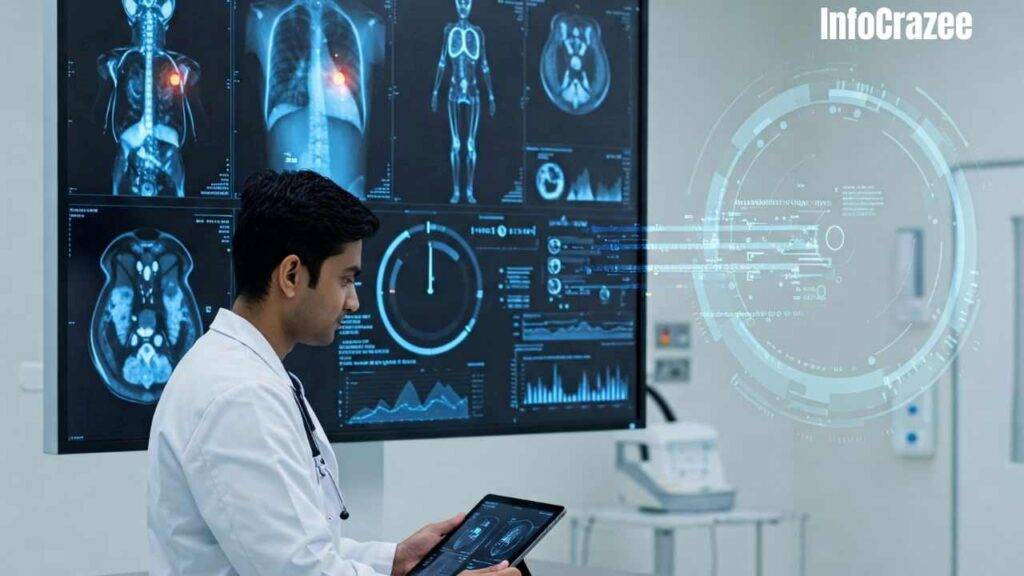
Faster Results, Less Waiting
- Medical Imaging: AI can scan and interpret X-rays, MRIs, and CT scans in a matter of seconds. In some hospitals, AI tools have reduced imaging report times by up to 90%.
- Lab Tests: AI-powered systems can flag abnormal blood test results or detect early signs of disease, allowing labs to prioritize urgent cases.
Real example: In the UK, some hospitals use AI to triage chest X-rays for signs of lung cancer, sending high-risk cases to doctors first. This helps speed up treatment decisions—literally saving lives.
AI Makes Diagnostics Smarter
AI doesn’t just go faster—it also learns as it goes.
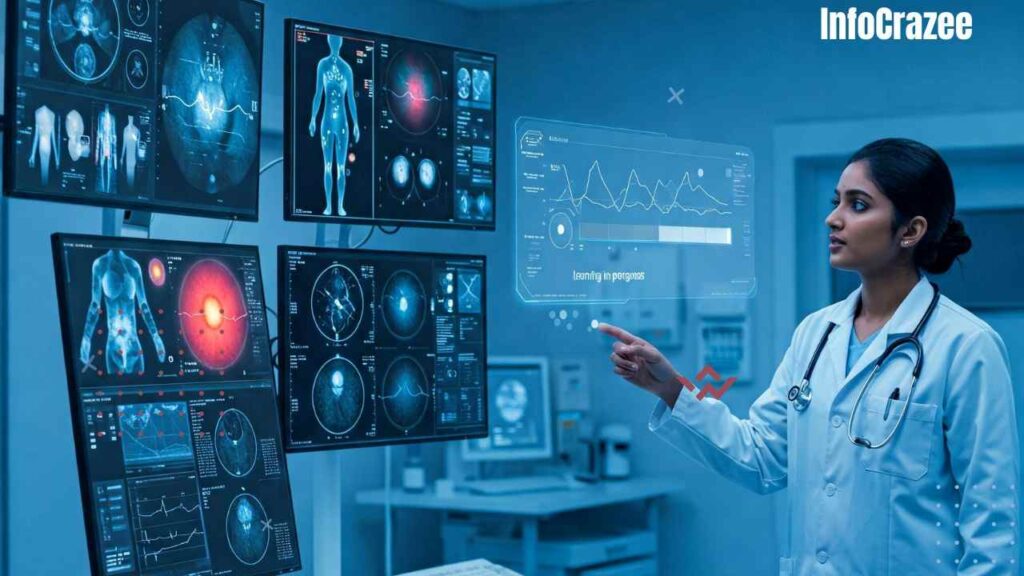
Pattern Recognition Like a Pro
AI is amazing at spotting subtle patterns in data—things a human eye might miss. For example:
- Cancer Detection: AI tools can detect early-stage cancers in mammograms or skin photos, often catching signs that are invisible to the naked eye.
- Heart Problems: Algorithms can analyze EKGs and flag irregular heartbeats that might be early signs of atrial fibrillation or other conditions.
- Eye Diseases: In some clinics, AI scans of the retina help catch diabetic eye disease early—sometimes even before symptoms appear.
Always Improving
Many AI systems use something called machine learning—they learn from every new case they see. That means the more data they process, the smarter and more accurate they become. Imagine a tool that improves every time it’s used!
Making Diagnostics More Accurate
When lives are on the line, accuracy is everything. AI is helping reduce errors and misdiagnoses in powerful ways.
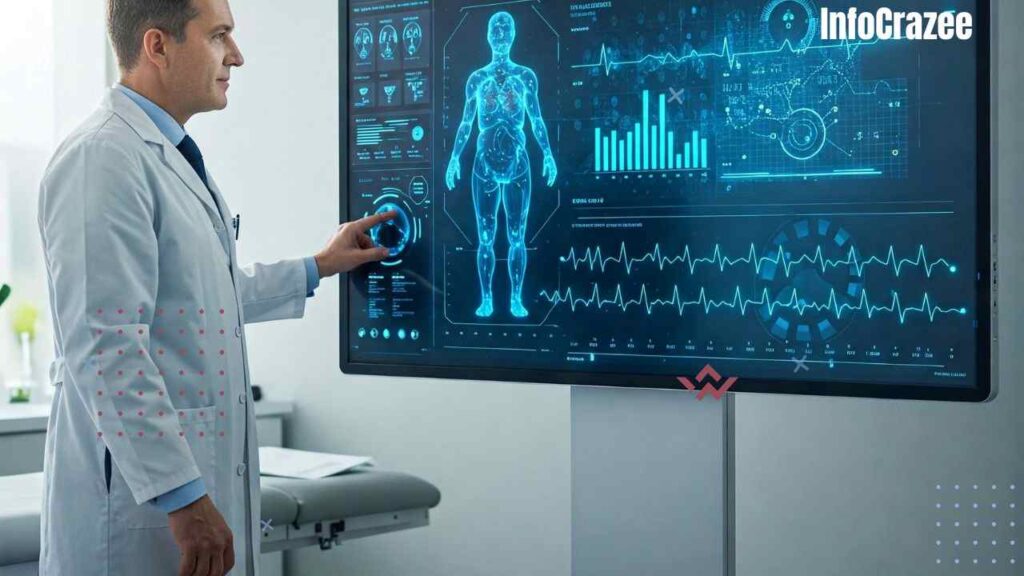
Less Guesswork, More Confidence
- AI tools don’t get tired, distracted, or rushed like humans can.
- They compare each new case against thousands or even millions of past cases in seconds.
- They help double-check results, giving doctors a second opinion they can trust.
Working Together with Doctors
Important note: AI doesn’t replace doctors. Instead, it acts like a super-smart assistant. It helps doctors make more informed decisions, spot red flags sooner, and focus their time on patients—not paperwork.
Where We’re Already Seeing This in Action
AI in diagnostics isn’t just a theory—it’s already being used around the world.
- Google’s DeepMind: Developed an AI that can detect over 50 eye conditions with the accuracy of top specialists.
- PathAI: Helps pathologists diagnose cancer more accurately by analyzing tissue samples.
- Babylon Health: Uses AI chatbots and image analysis to provide diagnostic support via smartphones.
And this is just the beginning.
The Challenges: It’s Not Perfect Yet
Of course, no technology is flawless. AI in healthcare faces a few bumps along the way:
- Data Privacy: Medical data is sensitive. Making sure AI systems are secure and private is a big challenge.
- Bias in Data: If AI is trained mostly on one type of population (like adults or people from certain regions), it may not work as well for others.
- Doctor Trust: Some doctors are still cautious about relying on AI. It takes time to build trust in new tools.
Still, progress is happening fast—and the future looks bright.
The Future of AI in Diagnostics
Imagine wearable devices that constantly monitor your health and send alerts before anything goes wrong. Or AI apps that help you check symptoms at home, with instant feedback.
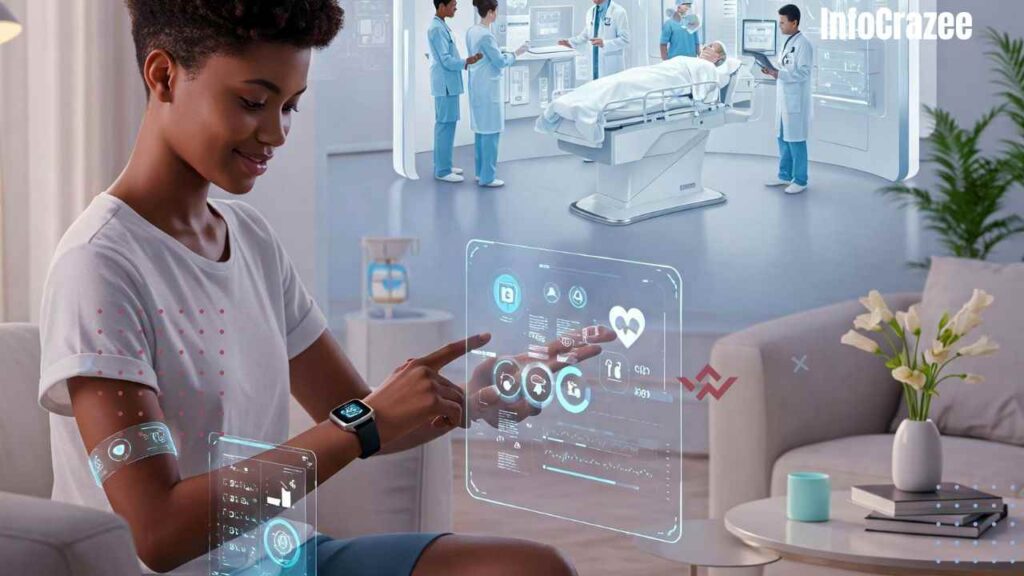
That future is closer than we think.
As AI gets better and more trusted, expect to see:
- More at-home testing with AI support
- AI-powered decision tools in every hospital
- Personalized diagnostics based on your unique health data
We’re not just talking about faster results. We’re talking about better care and healthier lives.
Final Thoughts
AI is transforming healthcare diagnostics in a big way. It’s speeding up results, making smarter decisions, and helping doctors deliver more accurate care. While there are still challenges to solve, one thing’s clear: AI is here to help us live longer, healthier lives.
Whether it’s detecting cancer early or simply reducing the stress of waiting for test results, AI is a game-changer in the world of healthcare—and it’s only just getting started.
FAQs
1. Will AI replace doctors in the future?
No, AI is designed to support doctors, not replace them. It acts like a high-tech assistant, helping with quick data analysis and giving doctors more accurate tools to work with.
2. Is AI reliable for diagnosing serious conditions like cancer?
AI has shown high accuracy in detecting diseases like cancer—sometimes even better than human specialists. However, it’s always used alongside a doctor’s expertise for final decisions.
3. Can patients access AI diagnostic tools themselves?
Yes! Some apps and telehealth services now offer AI-powered symptom checkers and health scans. While they’re not a replacement for seeing a doctor, they can help guide you in the right direction.
